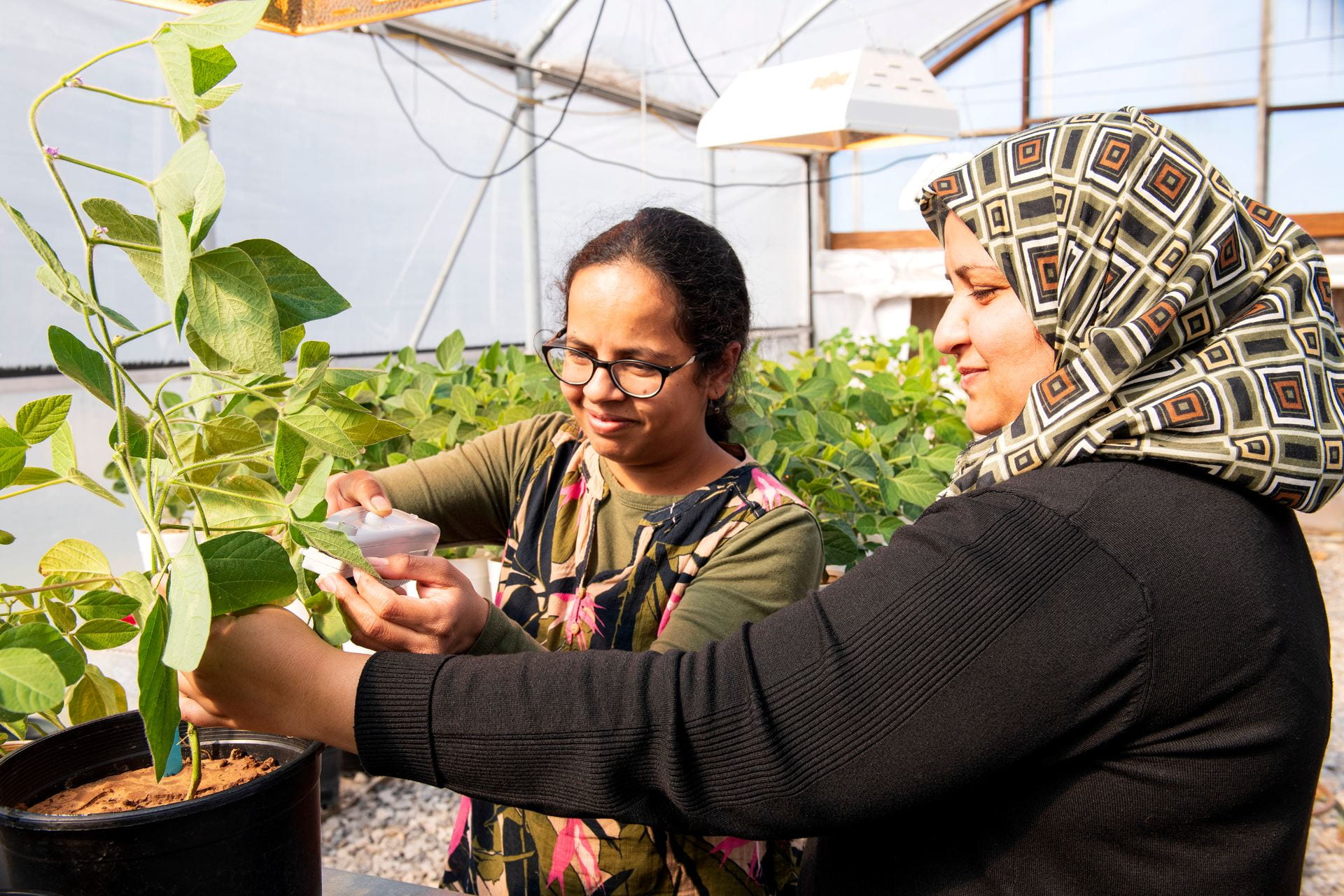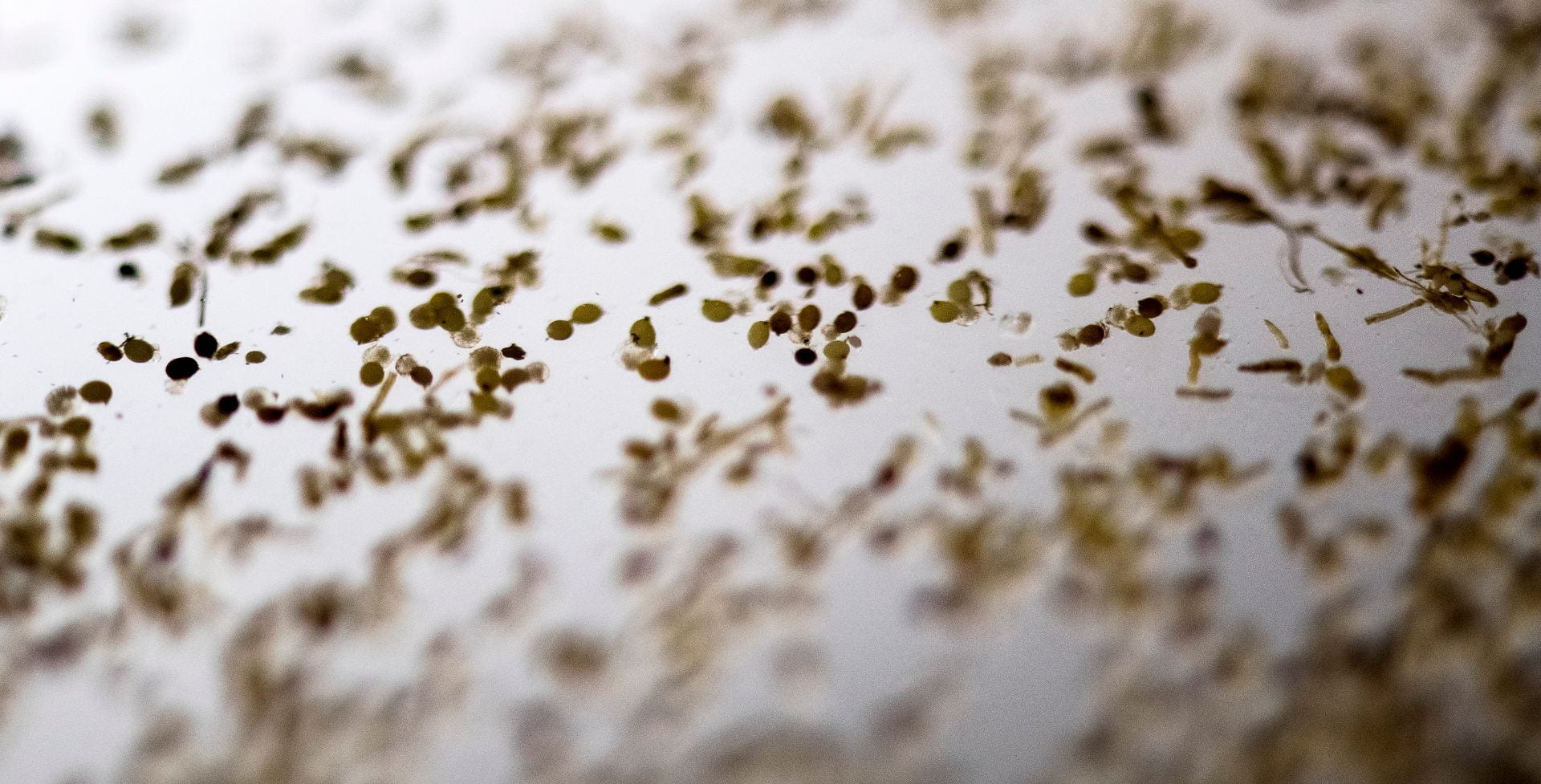Plant-Elicitor Peptides Boost Nematode Resistance in Soybean

The Problem
The No. 1 cause of soybean yield loss in the United States is soybean cyst nematode, and root-knot nematode is in the top five pests of the crop. Economic losses to soybean crops in Arkansas from root-knot nematode increased 180 percent from 2011 to 2021, according to data from the Crop Protection Network, which is a product of land grant universities. The network’s data show that root-knot nematode created a 4 percent yield loss of soybean crops in Arkansas in 2021, which was a loss of 6.6 million bushels valued at $84.6 million. Soybean cyst nematode damaged about $10.5 million in Arkansas soybeans in 2021.
The Work
Prior research in other laboratories showed that a plant’s responses could be made stronger against pathogens and insects when either provided excess propeptides or supplied with the bioactive peptide artificially.
Fiona Goggin, professor of entomology at the experiment station, the research arm of the University of Arkansas System Division of Agriculture, collaborated with Alisa Huffaker at the University of California-San Diego, a researcher involved with the original discovery of plant-elicitor peptides in Arabidopsis, a plant commonly used for experiments. Together, they showed that treating soybean seeds with soybean plant elicitor peptides could reduce infection by soybean cyst nematode and root-knot nematode, without suppressing root growth or seed development.
Because the effects of seed treatment may not carry over into later stages of the growing season, the Goggin lab also experimented with using a bacteria delivery system for long-term impact and potential cost savings. They collaborated with Cynthia Gleason at Washington State University and Lei Zhang at Purdue University, who had previously used bacteria to deliver peptides in potatoes. The following researchers in Goggin’s lab have also been integral partners in the research: Abeer Alnasrawi, Ph.D. candidate in the cell and molecular biology program; Ashley Humphreys, graduate student; and post-doctoral fellows Min Woo Lee and Payal Sanadhya.

The Results
Goggin said that seed treatments with synthetic plant-elicitor peptides reduced soybean cyst nematode and root-knot nematode infection. The researchers also found that rhizobacteria, or bacteria that colonize root systems, can represent a promising alternative approach to deliver those peptides for nematode management. Having shown that the bacterial-delivery method decreases soybean cyst nematode damage, Goggin’s team is now conducting experiments to see if the method works on root-knot nematode as well.
The Value
While there are a variety of nematode-resistant soybean cultivars that growers can choose from, none can control all strains of soybean cyst nematode and root-knot nematode at the same time. In the United States, the Crop Protection Network estimates approximately $1.3 billion in soybean losses due to soybean cyst nematode and $156 million due to root-knot nematode. This collaborative research effort could lead to commercial development of an alternative pathogen management system that has long-lasting effects and overrides pesticide resistance.
About the Researcher

Fiona Goggin
Professor, Entomology and Plant Pathology
B.S., Plant Science, Cornell University, Ithaca, NY.
Ph.D., University of California, Davis, CA.
Goggin’s research program is focused on plant defenses against herbivory, with an emphasis on mechanisms of resistance against vascular feeders such as aphids and root-knot nematodes.

